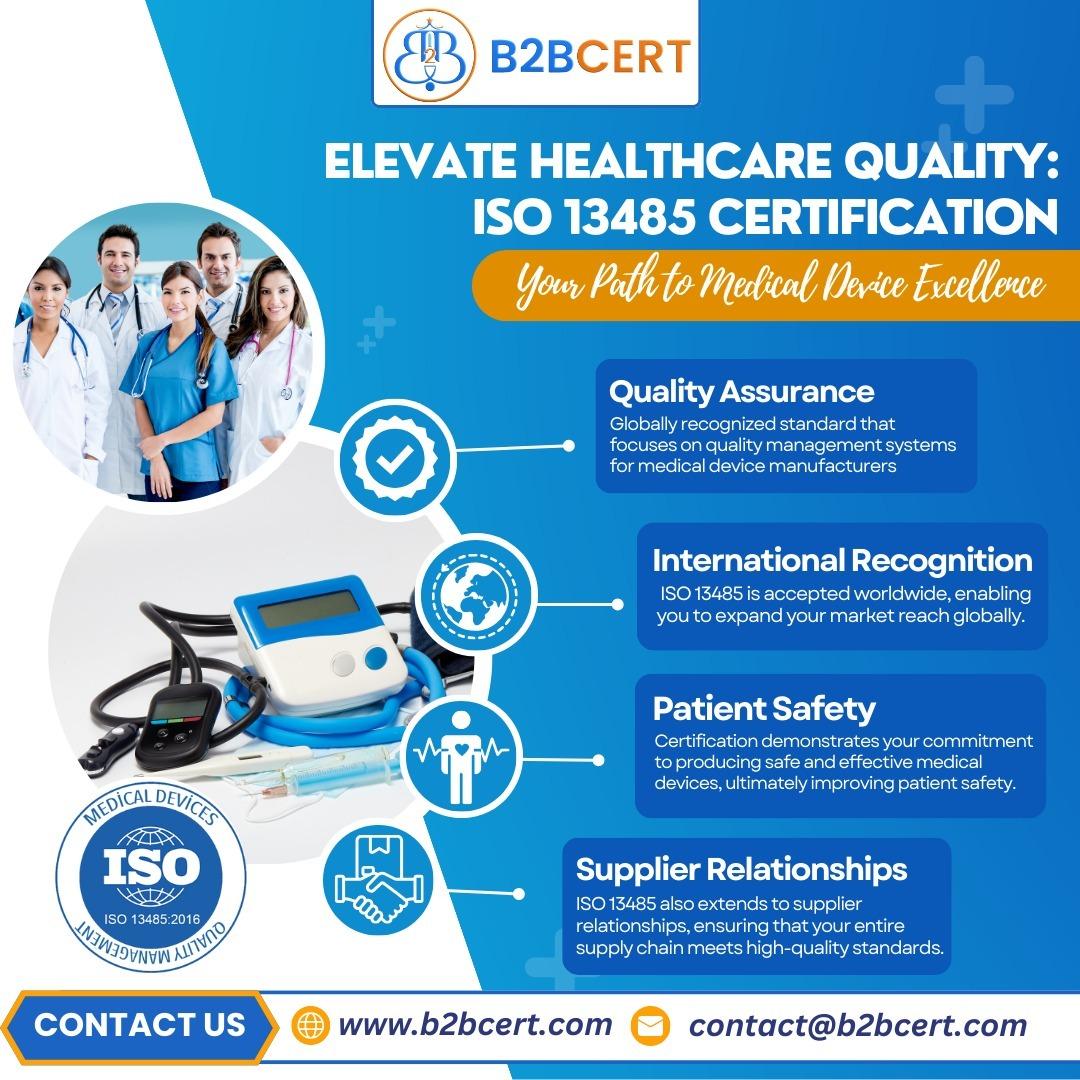In today’s competitive business environment, organizations must prioritize customer satisfaction to maintain relevance and growth. For companies operating in regulated industries, especially those involved in medical devices, the quality management system (QMS) is central to ensuring products meet customer expectations and regulatory requirements. ISO 13485 Certification in Dubai provides a structured framework that helps organizations systematically collect, analyze, and utilize customer feedback to drive continual improvement.
Collecting Customer Feedback
The first step in leveraging customer feedback is collecting it efficiently and comprehensively. Organizations adopt multiple channels to gather feedback, ensuring no opportunity for insight is missed. Common methods include:
-
Surveys and Questionnaires: Structured surveys are sent to customers post-purchase or post-service to gauge satisfaction levels, product performance, and service quality. Online surveys can reach a wider audience and provide quantitative data for analysis.
-
Customer Complaints and Returns: Every complaint or product return is a direct reflection of the customer’s experience. Documenting these interactions within the QMS allows organizations to track recurring issues and identify improvement areas.
-
Social Media and Online Reviews: Monitoring social media platforms and review websites helps organizations capture spontaneous feedback, detect trends, and respond promptly to customer concerns.
-
Direct Communication: Calls, emails, and in-person meetings with clients offer qualitative insights that surveys alone may not capture. These interactions can reveal nuanced expectations and unique challenges faced by customers.
-
Post-Market Surveillance: For medical device companies, post-market surveillance is critical. Feedback collected during post-market activities ensures compliance with ISO 13485 and regulatory authorities while informing product enhancements.
ISO 13485 Consultants in Dubai often recommend integrating these methods into a centralized feedback management system, ensuring consistency and traceability within the QMS.
Analyzing Customer Feedback
Collecting feedback is only the first step; analyzing the data is crucial for identifying actionable insights. Effective analysis involves both qualitative and quantitative approaches:
-
Trend Analysis: By tracking patterns over time, organizations can identify recurring issues, measure improvements, and anticipate potential risks. For example, multiple complaints about a device component may indicate a need for design changes or supplier evaluation.
-
Root Cause Analysis (RCA): RCA helps organizations understand why a problem occurred rather than just addressing symptoms. Techniques such as the 5 Whys or Fishbone Diagrams are commonly used to investigate complaints, ensuring corrective actions address the underlying causes.
-
Customer Satisfaction Metrics: Metrics such as Net Promoter Score (NPS), Customer Satisfaction Score (CSAT), and Customer Effort Score (CES) provide quantifiable measures of customer perceptions. ISO 13485 Services in Dubai often advise combining these metrics with qualitative feedback to develop a comprehensive understanding.
-
Regulatory and Compliance Considerations: Feedback analysis must also assess compliance risks. For medical device companies, non-conformance identified through feedback could have regulatory implications, requiring immediate corrective measures.
-
Benchmarking: Comparing feedback against industry standards or competitors’ performance helps identify gaps and opportunities for improvement.
Using Feedback for Continual Improvement
The ultimate goal of collecting and analyzing customer feedback is to enhance products, processes, and services. ISO 13485 emphasizes the continual improvement of the QMS based on objective evidence, and customer feedback plays a pivotal role in this process.
-
Corrective and Preventive Actions (CAPA): Feedback analysis often triggers CAPA initiatives. Organizations document the issue, investigate root causes, implement corrective measures, and monitor effectiveness, ensuring similar issues do not recur.
-
Product and Service Enhancements: Feedback guides product design improvements, packaging modifications, and service delivery enhancements. This proactive approach helps companies align with customer expectations while maintaining regulatory compliance.
-
Process Optimization: Recurrent feedback related to process inefficiencies can prompt workflow improvements, training programs, or technology upgrades, ultimately improving overall quality and efficiency.
-
Employee Training and Awareness: Feedback is not only external but also internal. Sharing insights with employees raises awareness of customer needs and expectations, fostering a culture of quality and accountability.
-
Management Review: ISO 13485 requires management reviews to evaluate QMS performance. Customer feedback forms a key input during these reviews, influencing strategic decisions, resource allocation, and future planning.
-
Communication with Customers: Closing the feedback loop by communicating corrective actions or improvements to customers reinforces trust and demonstrates a commitment to quality and service excellence.
Integrating Customer Feedback in QMS for ISO 13485 Compliance
Organizations seeking ISO 13485 Certification in Dubai benefit from a structured approach to feedback management. ISO 13485 Consultants in Dubai recommend:
-
Maintaining detailed records of all feedback, complaints, and CAPA activities.
-
Using software tools to centralize data collection and reporting.
-
Periodically reviewing feedback trends to inform strategic QMS decisions.
-
Aligning feedback-driven improvements with regulatory requirements to ensure compliance.
By systematically collecting, analyzing, and acting on customer feedback, organizations can achieve continual improvement, enhance customer satisfaction, and maintain a competitive edge in the medical device industry. ISO 13485 Services in Dubai provide the guidance and tools necessary to embed these practices seamlessly into your QMS, ensuring both regulatory compliance and operational excellence.
Conclusion
Customer feedback is a powerful driver of continual improvement in any Quality Management System. By leveraging structured collection methods, thorough analysis, and strategic application of insights, organizations can optimize products, processes, and services while aligning with ISO 13485 standards. For businesses in Dubai seeking to strengthen their QMS, partnering with ISO 13485 Consultants ensures that customer feedback becomes a cornerstone of sustainable growth, compliance, and excellence in quality management.



